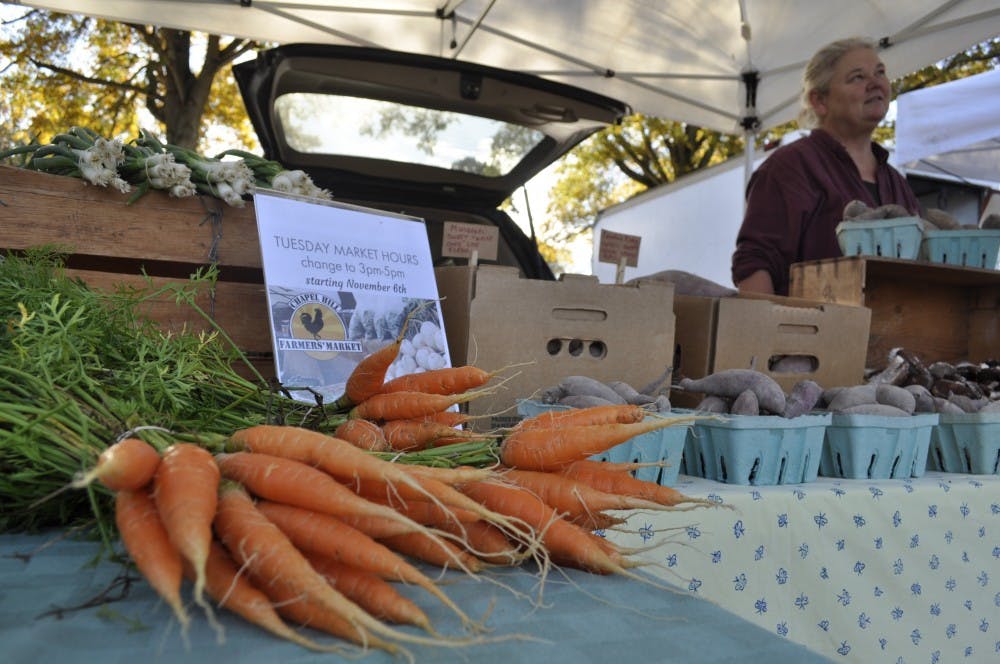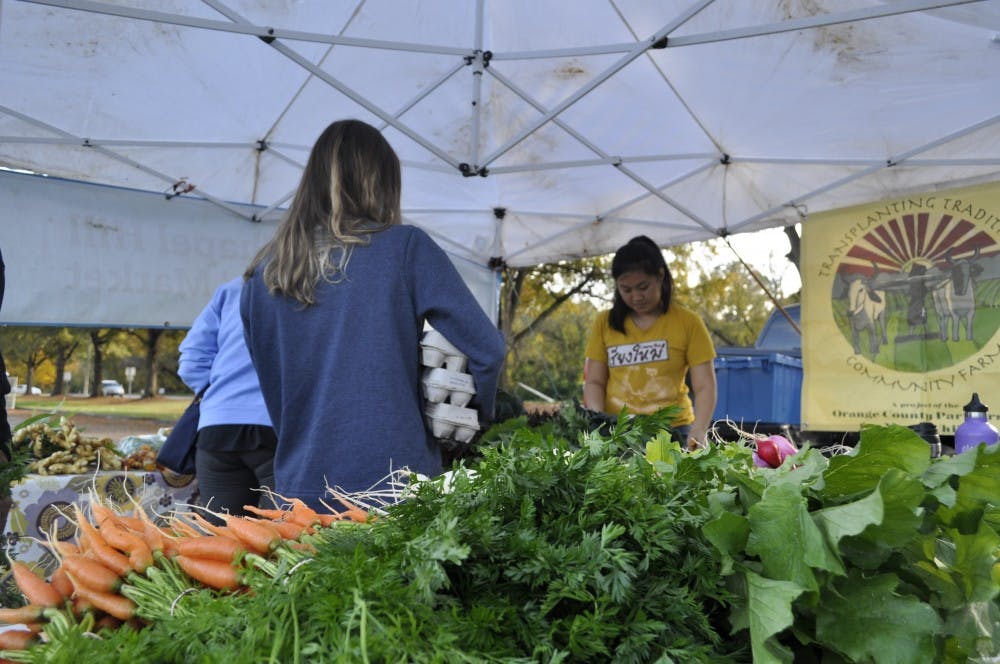As the temperatures begin to fall, don’t expect the Chapel Hill or Carrboro farmers markets to close.
Unlike many local markets, both the Chapel Hill Farmers’ Market and the Carrboro Farmers’ Market stay open year-round to allow small, family-owned farms to make income throughout the winter months. Despite serious drops in attendance after November, vendors and loyal customers come out every Saturday morning to buy and sell local produce.
Carrboro Farmers’ Market manager Molly Vaughan said that in the summer months, as many as 5,000 people will come through the market in one day. But in the winter, that number can drop as low as 800.
“Not as many people come out all year long because, in the summertime, it’s a fun family activity — and while that’s wonderful, it would be great if people could get on board with shopping locally year round,” Vaughan said.
Vaughan said farmers work hard to extend the season, something that is possible because of North Carolina’s climate, and make a good market for their year-round customers. Winter markets are not only good for vendors who rely on the markets for income but also consumers of local produce, Vaughan said.

In trying to motivate more people to shop at the markets, both the Chapel Hill and the Carrboro farmers markets are accepting food stamps and Electronic Benefit Transfers.
“We really want people to know that this food is available for everyone," Kate Underhill, manager of the Chapel Hill Farmers’ Market, said. "It’s not exclusive for just wealthy people to shop at the market."




